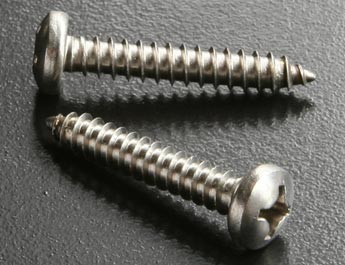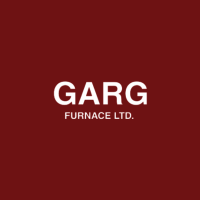Screws vs. Bolts: When Screws Are the Best Choice for Metal Projects

Strong 8k brings an ultra-HD IPTV experience to your living room and your pocket.
When it comes to working with metal, choosing the right fastener can make or break your project—literally. While bolts are often seen as the go-to for heavy-duty applications, there are plenty of situations where screws are the better fit. Knowing when and why to use screws for metal can save you time, improve durability, and even simplify your work.
Understanding the Importance of Fastener Choice
So, what makes screws the smarter choice in some metal projects? For starters, screws offer a level of convenience that bolts simply can’t match. They’re self-threading, which means they can tap their own hole as they are driven into the material. This eliminates the need for pre-drilled holes and nuts in many cases, which can speed up your workflow significantly. If you're working solo or on a smaller project, this can be a real game-changer.
Convenience and Time-Saving Benefits
Another major advantage of using screws for metal is precision. Screws are ideal when you need a tight, secure fit in thinner sheet metal or when working in tighter spaces where a nut-and-bolt setup would be overkill or physically impossible. With the right type—like self-tapping or self-drilling metal screws—you can secure panels, brackets, and fixtures cleanly and efficiently. These screws are specially designed to cut through metal without damaging it, maintaining structural integrity while giving a solid hold.
Precision in Tight and Thin Applications
Durability is another key reason why screws often edge out bolts in specific scenarios. Today’s screws for metal are made to resist corrosion, extreme temperatures, and mechanical stress. With options like stainless steel or coated carbon steel screws, you can count on long-lasting performance—even in outdoor or industrial environments.
Durability and Material Strength
Let’s not forget the aesthetic benefit. Bolts often require washers, nuts, and a lot of visual bulk. Screws, on the other hand, are more discreet. If your project involves visible surfaces—like metal furniture, signage, or decorative panels—screws can offer a cleaner, more professional look.
Aesthetics and Clean Design
Of course, bolts still have their place. For high-load applications or when joining thick, structural pieces of metal, bolts provide unmatched strength. But for everyday metalwork, repairs, DIY tasks, or medium-duty construction, screws for metal are often the faster, easier, and more efficient option.
When Bolts Still Make Sense
In the end, the choice between screws and bolts doesn’t come down to which one is better overall, but which one is better for your specific needs. By understanding the strengths of each, especially the unique advantages of screws, you’ll be better equipped to choose the right tool for the job.
Final Thoughts: Make the Right Choice for Your Metal Project
So next time you're planning a metal project, take a moment to consider your fastener. Screws for metal offer more than just convenience—they deliver strength, durability, and ease of installation. Unlike welding or riveting, metal screws require no specialized equipment and allow for quick adjustments or disassembly. They're available in various types and coatings to match different metals and environments, reducing the risk of corrosion.
Whether you're working on sheet metal, framing, or repairs, metal screws provide a reliable and efficient solution. Make the smarter choice—choose screws for metal and streamline your project from start to finish.
Note: IndiBlogHub features both user-submitted and editorial content. We do not verify third-party contributions. Read our Disclaimer and Privacy Policyfor details.


